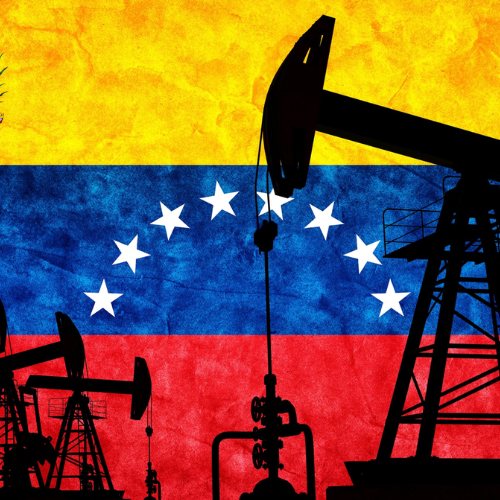Venezuela’s oil exports have stayed almost the same recently, even though the country is under strong sanctions from the United States.
Venezuela’s Oil Exports Stay Steady Despite U.S. Sanctions
Normally, Venezuela sells much of its oil to the U.S. and Europe. But because of new rules from the U.S. government, many of those sales have dropped. The U.S. Treasury and State Departments decided to revoke authorizations that allowed some companies to buy Venezuelan oil, giving them until May 27 to stop.
Even though Venezuela lost some customers in the U.S. and Europe, it didn’t lose much overall. This is because it sold a lot more oil to China, which helped make up for the drop in sales to other countries. The Venezuelan state oil company, PDVSA, increased shipments to China, keeping total exports nearly steady.
In May, about 30 ships left Venezuela carrying almost 779,000 barrels of crude oil and fuel every day. This is about the same as the previous month and shows that Venezuela has been able to keep exporting despite the sanctions. Venezuela also exported many oil products like petrochemicals during this time.
Impact of U.S. Sanctions Under President Trump
The U.S. has had energy sanctions on Venezuela since 2019. These sanctions require companies to have permission from the U.S. government to buy oil from Venezuela or work with PDVSA. This year, under President Donald Trump’s administration, the U.S. Treasury and State Departments took back some of those permissions. Many companies had to stop buying Venezuelan oil by May 27.
One major company affected is Chevron, which has operated in Venezuela for years. Due to payment problems and sanctions, PDVSA stopped delivering oil to Chevron and India’s Reliance Industries in May. Some other deals, like oil swaps with partners Maurel & Prom and trading company Vitol, went ahead as planned before the licenses expired.
Because of the sanctions, Venezuela’s oil sales to traditional buyers in the U.S. and Europe dropped. For example, the U.S. imported about 140,000 barrels per day in May, only a small increase from April but far less than previous years. Venezuela also increased its fuel imports to over 159,000 barrels per day in May to help with refining its heavy crude oil.
Black Gold, Grey Routes: Sanctioned Tankers Deliver Record Russian Oil to India
Venezuelan President Nicolas Maduro calls the sanctions an “economic war” and rejects them strongly. The sanctions aim to pressure Venezuela over concerns about political reforms and migrant returns.
China’s Growing Role as Venezuela’s Top Oil Buyer
While exports to the U.S. and Europe fell, China became Venezuela’s biggest oil customer last month. China imported about 584,000 barrels of oil per day in May, up from 521,000 barrels in April. This shows China’s growing role in Venezuela’s oil trade.
Venezuela also started shipping a heavy crude oil called Boscan directly to Asia on its own. Previously, this oil was produced with Chevron and sent mainly to U.S. refineries. Now, Venezuela is sending it to Asian markets without needing U.S. permission.
Venezuela completed a large oil swap with Maurel & Prom and Vitol before the U.S. licenses expired. This was one of the last major deals allowed under the old rules.
China’s increasing purchases helped Venezuela offset the decline caused by U.S. sanctions. This shift shows how Venezuela is adapting to keep its oil exports flowing despite the tough restrictions from the U.S.


